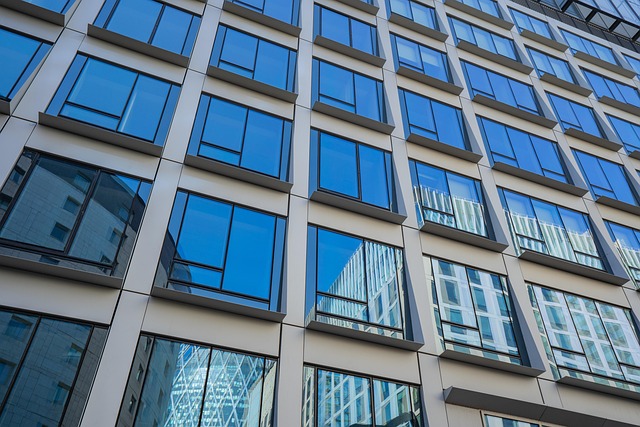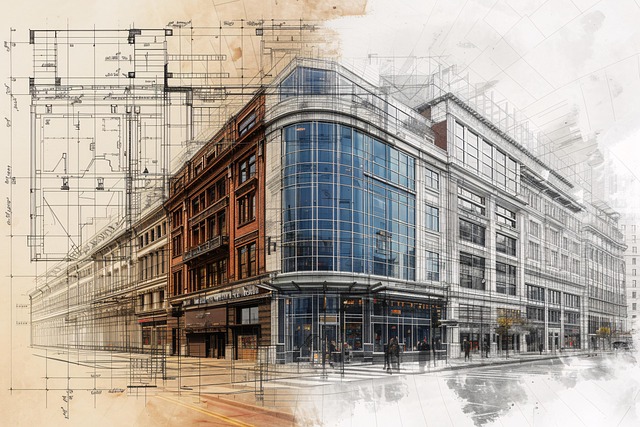Corrosion significantly impacts the performance and longevity of commercial gas-fired water heaters, leading to costly repairs in high-demand industrial settings like restaurants and hotels. Stainless steel is a superior choice due to its corrosion resistance and long-lasting performance, ensuring reliable hot water supply. Advanced corrosion-resistant features, including high-quality stainless steel construction and protective coatings, are engineered into commercial heaters for demanding applications. Proper maintenance, such as regular cleaning and leak checks, combined with corrosion inhibitors, extends lifespan and enhances energy efficiency in these industrial-grade solutions.
In the realm of commercial gas-fired water heaters, corrosion resistance is paramount for ensuring longevity and efficiency. This article delves into the intricate details of stainless steel’s pivotal role in thwarting corrosion within these vital heating systems. By exploring the fundamental mechanisms of corrosion in commercial gas heaters, we uncover why stainless steel stands as a durable choice. Additionally, we dissect key design features and maintenance practices that reinforce resistance against corrosive forces, enhancing performance and minimizing downtime for bustling commercial operations.
- Understanding Corrosion in Commercial Gas Heaters
- Stainless Steel: A Durable Choice for Water Heaters
- Design Features Resisting Corrosion Attack
- Maintenance Practices for Longevity and Efficiency
Understanding Corrosion in Commercial Gas Heaters

Corrosion is a significant challenge in commercial gas-fired water heaters, often leading to system failure and costly repairs. These heaters, designed for high-demand, continuous use in various industrial applications like restaurants, hotels, and institutional settings, are exposed to aggressive environments. The presence of moisture, varying temperature fluctuations, and the corrosive nature of gases used for combustion create a perfect storm for metal corrosion.
Commercial gas fired water heaters face unique challenges compared to residential models due to their high-capacity operations. Over time, these factors can cause degradation in the heater’s performance, affecting the overall efficiency of commercial water heating systems. Understanding and addressing corrosion early on is crucial for maintaining optimal operational conditions, ensuring reliable hot water supply for institutional and commercial applications like restaurant water heating and hotel hot water systems.
Stainless Steel: A Durable Choice for Water Heaters

Stainless steel is a popular and durable choice for commercial gas-fired water heaters due to its exceptional resistance to corrosion and long-lasting performance. This robust material is particularly well-suited for industrial hot water applications, where it can withstand harsh environments and demanding conditions. In the realm of commercial water heating, stainless steel offers several advantages over traditional materials.
Commercial gas heaters, especially those with tankless or storage water heaters, benefit from stainless steel construction, ensuring longevity and reliable performance. This is particularly important in settings like hotels and restaurants where hot water systems are integral to daily operations and customer satisfaction. High-capacity heaters made of stainless steel can efficiently meet the demands of institutional water heating, providing consistent and abundant hot water without compromising durability.
Design Features Resisting Corrosion Attack

Commercial gas-fired water heaters are designed with several features to withstand and resist corrosion, ensuring longevity and optimal performance in demanding industrial settings. One key aspect is the use of high-quality stainless steel for both the tank and components. This robust material forms a protective barrier against corrosive substances, common in various commercial applications like restaurant water heating or hotel hot water systems.
Additionally, modern gas fired systems often incorporate advanced corrosion-inhibiting coatings and linings, further enhancing their resistance. These designs, coupled with proper maintenance, make high-capacity heaters suitable for institutional water heating needs. Tankless water heaters, for instance, eliminate the need for a storage tank, reducing potential corrosion points and offering efficient, on-demand hot water solutions for commercial properties.
Maintenance Practices for Longevity and Efficiency

Proper maintenance is key to extending the lifespan and maintaining efficiency of commercial gas-fired water heaters. Regular cleaning and inspections are essential practices to prevent corrosion and ensure optimal performance, especially in demanding industrial settings like restaurants and hotels where hot water systems operate around the clock. By implementing a robust maintenance schedule, including flushing the system and inspecting connections for leaks or wear, businesses can safeguard their investments in high-capacity commercial gas heaters and tankless water heaters.
Additionally, using suitable corrosion inhibitors and treating the water supply can significantly reduce the impact of mineral deposits and other contaminants on gas fired systems. This is particularly important for storage water heaters, which hold water for extended periods, making them more susceptible to internal corrosion. By combining these maintenance practices with modern, industrial-grade commercial water heating solutions, businesses can ensure reliable hot water supply while enhancing energy efficiency and reducing long-term operational costs in institutional settings.
Gas-fired water heaters are essential in commercial settings, but corrosion can pose a significant challenge. Stainless steel emerges as an exceptional material due to its superior resistance to corrosion, making it a durable and reliable choice for commercial applications. By implementing specific design features and adhering to maintenance practices, these heaters can provide efficient performance for years to come. Understanding the intricacies of corrosion and adopting effective preventative measures are key to navigating this issue, ensuring optimal functionality and longevity of gas-fired water heaters in commercial environments.
